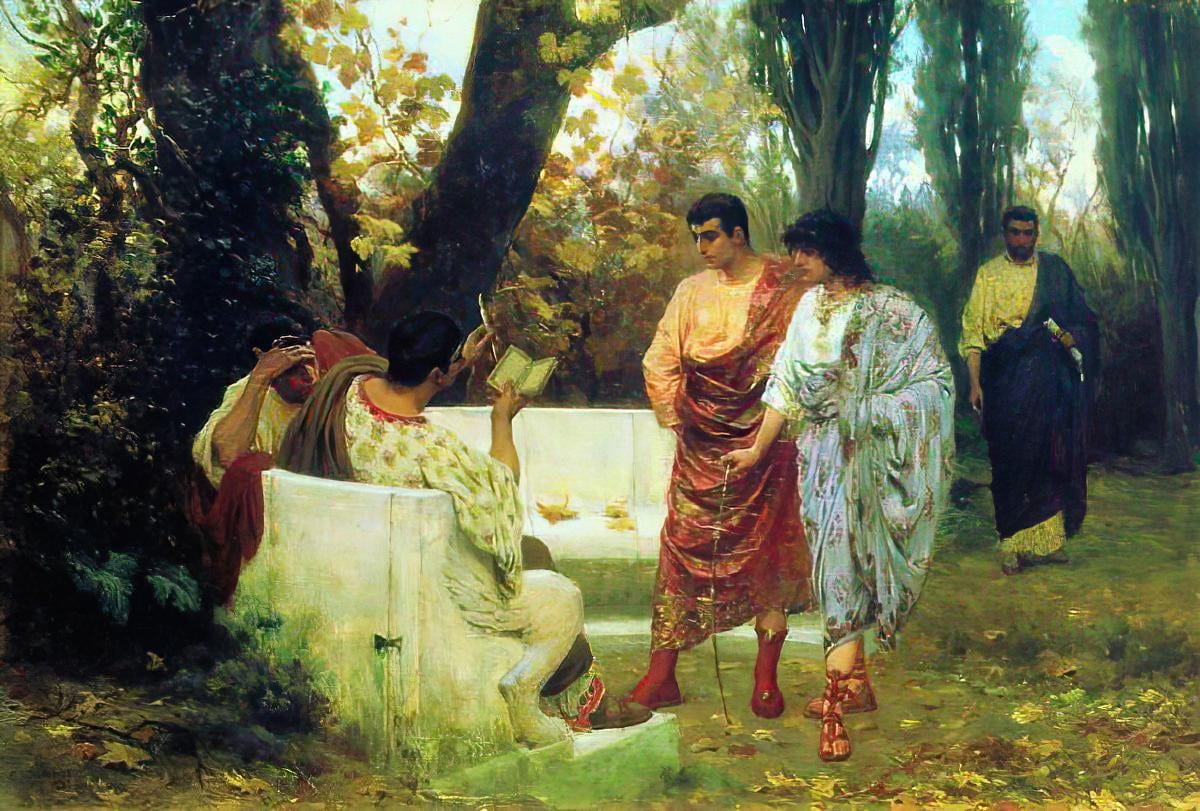Featured Photo: “Catullus” by Stefan Bakałowicz
Graecia Capta: Catullus and Philodemus
By Mati Davis
Catullus 85
Odi et amo. Quare id faciam, fortasse requiris?
Nescio sed fieri sentio et excrucior.
Hating and loving. You might want to ask why, why do I do this.
Ι᾽m at a loss, but it still hurts and I scream out in pain!
Philodemus AP 5.131
Ψαλμὸς καὶ λαλιὴ καὶ κωτὶλον ὄμμα και ὠδὴ
Ξανθίππης καὶ πῦρ ἄρτι καταρχόμενον,
ὦ ψυχή, φλέξει σε· τὸ δ’ἐκ τίνος ἢ πότε καὶ πὠς
ούκ οἶδα· γνώσῃ, δύσμορε, τυφομένη.
Talking and singing and chatting and playing the harp—this Xanthippe
Melts me with shimmering eyes. Then, an inferno inside
Risen from sparks, now erupts in my soul. Wait, where did this come from?
Nobody knows, but you’ll burn up oh you star-crossed fool.
Author’s Statement
The famous saying by Horace, “Graecia capta ferum victorem cepit (In being conquered, Greece herself conquered her ferocious conqueror)” (Book II, epistle 1, lines 156-157), describes the way in which Greek art and culture seeped into Roman society and inspired Roman authors, artists, and architects. The similarities between these two poems, one Greek and one Latin, go beyond stylistic (compare Philodemus’ ὄμμα and ὠδη and Catullus’ odi et amo) as they both describe so vividly the confusion and agitation caused by love or loss thereof. My translations of these two poems aim to portray Catullus’ inspiration from his Greek predecessors and the incorporation of his own unique flair. In doing so, I maintained the meter of Catullus’ elegiac couplet and imposed it on Philodemus’ poem.
Mati Davis (College ’21) is a student at the University of Pennsylvania studying Classical Studies with a minor in Computer Science.
